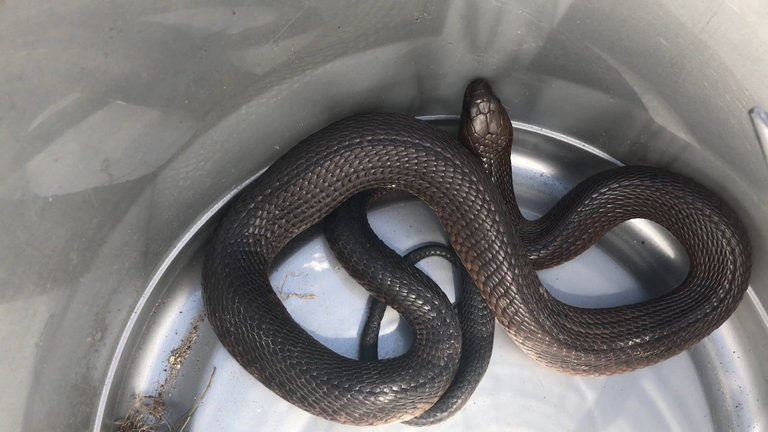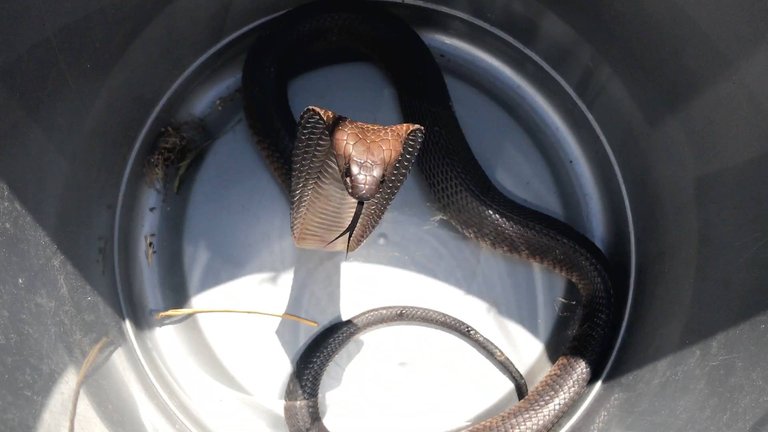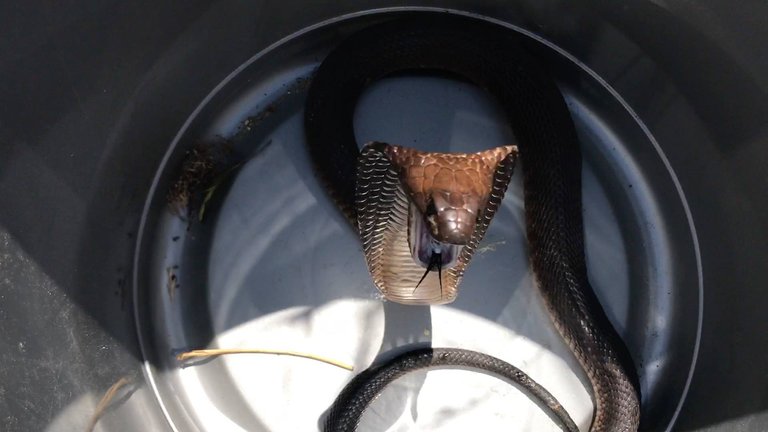I was called out to a house in Milnerton last night after the owners saw their dog facing down a Cape Cobra in the yard.
(html comment removed: more)
By the time I got there the snake was gone and the light was fading, but we did a thorough search of the yard, shed, and garage and couldn't find anything.
This morning they called me again, and told me that the snake had returned. It was promptly captured and then released safely into the bush.



Also known as a "Koperkapel" or "Geelslang" in Afrikaans, the Cape Cobra is a common venomous snake that can range in colour from yellow through reddish brown to black.
When threatened or cornered, Cape Cobras are quick to spread a hood and won't hesitate to bite. Their venom is highly neurotoxic (the most potent of any African cobra), attacking the nervous system and causing respiratory collapse (the victim stops breathing).
Cape Cobras feed on rodents, birds, lizards, toads, and other snakes.
Oviparous, they lay 8-20 eggs in mid-summer.